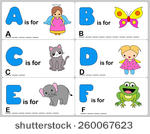dict.cc
⇄
⇄
Advertisement
| NOUN | a word | words | |
| SYNO | actor's line | dustup | language | ... |
Translation for 'words' from English to Icelandic
- without words
- orðalaust {adv}
- lofty words
- orðaprjál {hv}
- Advertisement
- words fight
- orðasenna {kv}
orðahnippingar {kv.ft} - careful with words
- orðvandur {adj}
- crafted by words
- unverified ofinn með orðum {adj}
- in other words
- með öðrum orðum {adv}
- to put sth. in words
- að færa e-ð í orð
- to use curde words
- að viðhafa ljót orð
- to use strong words
- að taka mikið upp í sig
að taka stórt upp í sig
að taka djúpt í árinni - battle of words
- orðahnippingar {kv.ft}
- choice of words
- orðaval {hv}
orðbragð {hv} - exchange of words
- orðaskipti {hv.ft}
- gush of words
- buna {kv} [málæði]
- loss for words
- orðfall {hv}
- multitude of words
- orðgnótt {kv}
- twisting of words
- útúrsnúningur {k}
orðhengilsháttur {k} - words of appreciation
- þakkarorð {hv.ft}
- words of cheer
- hvatningarorð {hv.ft}
- words of warning
- viðvörunarorð {hv.ft}
- to find words to express sth.
- að koma orðum að e-u
- as these words were spoken
- í þeim töluðu orðum {adv}
- I couldn't make out the words.
- Ég heyrði ekki orðaskil.
- The words are represented with Icelandic spelling.
- Orðin eru höfð með íslenskri stafsetningu.
- to be at a loss for words [sb. is at a loss for words]
- að verða orðfall [e-m verður orðfall]
- to find the right words for sth.
- að koma orðum að e-u
- to give an adverse interpretation to his words
- að leggja orð hans út á verri veg
Usage Examples English
See more ...
- The method compares words in a text to a set list of everyday words. The number of words per sentence and the percentage of unfamiliar words determine the reading age.
- The required length of writing is 40 words for A1, 60 to 80 words for A2, 160 to 180 words for B1 and at least 250 words for B2.
- Turkish words surviving in speech, obsolete Turkish words, new words formed regularly from the agglutinative resources of Turkish, thoroughly new words or formations.
- The average child masters about fifty words by the age of eighteen months.
- British English words are prevalent in the strip (like "-ise" words) and Medina uses these kinds of words in his own write-ups.
- Content words are usually open class words, and new words are easily added to the language.
- Book III focuses on words. Locke connects words to the ideas they signify, claiming that man is unique in being able to frame sounds into distinct words and to signify ideas by those words, and then that these words are built into language.
- Other than compound words and words of foreign origin, most words are monosyllabic.
- Edmundson stressed the importance of title-words for summarization and was the first to employ stop-lists in order to filter uninformative words of low semantic content (e.g. ...
- Words that have one syllable will be stressed determined by whether their function is cognitive or grammatical.
- Agyeya heavily used "Tadbhava" words (words adopted from Sanskrit), avoiding "Tatsama" words (words borrowed from Sanskrit with modified phonology).
- Magic words or words of power are words which have a specific, and sometimes unintended, effect.
- Most of the words ending in "-ḍu" are borrowings from Sanskrit words ending in "-a", and therefore the feminine forms of these words are equivalent to the Sanskrit words.
- Experiment three included full sentences of degraded words rather than individual words.
- For example, proper nouns and foreign words are not considered legal words. Players with non-legal words in solo games will receive a time penalty.
- Commonly misspelled English words (UK: misspelt words) are words that are often unintentionally misspelled in general writing.
- Loglan has three types of words: "predicates" (also called "content words"), "structure words" (also called "little words"), and "names".
- (b) Compound words, that is, words made of more than one original words: "nai"-see; "thok"-tasty; "naithok"-beautiful; "mwtai"-God; "nok"-house; "tongthar"-religion; "bwkha"-heart; "bwkhakotor"-brave; etc.
Advertisement
